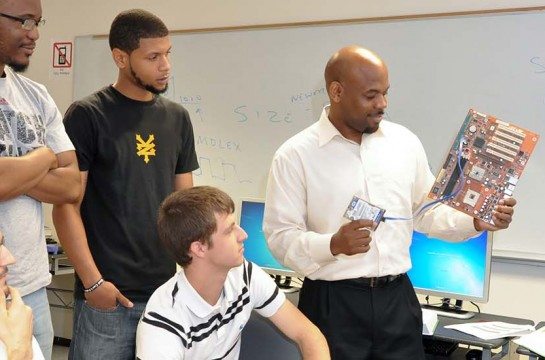“Give a man a fish, he eats for a day. Teach him to fish, he eats for a lifetime.”
This is a famous proverb that you’ll find when you visit the ITI Technical College website. These words aren’t just tossed aimlessly – they’re part of a fundamental principle behind ITI’s mission. Their goal is to provide education and leadership in technical career opportunities for their students, teaching them the skills they’ll need for a fulfilling career.
ITI has no doubt helped their students in this regard. Founded in 1973 in Baton Rouge, LA, ITI was recently named to Forbes Magazine’s Top 30 Trade Schools. The school was graded in three categories: affordability, quality of education, and starting salary/ROI on the cost of education. Boasting a 76% graduation rate, ITI has the distinction of being the only trade school named to the list in Louisiana as well as the Gulf South.
What makes ITI different? How did ITI earn this distinction? Joe Martin is the founder of ITI had some insights. One main reason according to Joe: small school size.
” Instructors and staff get to know students,” Martin explained. “Students see they’re known by name and not a student number.”
Martin anecdotally tells me that he likes to apologize to incoming students in advance for his staff because if they don’t show up for class, the staff will call to make sure everything’s okay.
“Their success is our success,” Martin stressed. ” We want to produce students who can get placed and get jobs.”
Students tell Joe they enjoy the atmosphere and the way the staff treats them. That has a huge impact on the campus culture. According to Martin, the students feel they’re a part of a family.
One thing that keeps ITI competitive is their Program Advisory Committee. Twice a year ITI will meet with employers in the area to learn about updates in the trade fields – and how their curriculum stacks up.
“We have two customers: students and employers,” Martin explained, discussing how the Program Advisory Committee impacts both the employer and the student.
Another competitive benefit to the ITI curriculum: the time between lecture hours and lab.
“Not only are they learning the lecture portion, but they then go and put that lecture into a working situation.” Martin noted, saying there’s about a 50/50 split between lecture hours and lab hours.
Students learn in a wide range of programs, from electricity, to air conditioning, IT, and drafting, among many other programs. These industries, among others, are all within the needs of the Louisiana area.
But education doesn’t necessarily end when the students graduate.
“Graduates know that there are placement services for a lifetime,” Martin explained. “They could have been at a job for 20 years, and could feel that they’re ready to move on to another job. If that’s the case, we can help them. Or, if they lose their job, they can still come and use those placement services at the school to find new employment.
“We also have a continuing education. For example, say an alumnus is working at a job and they get laid off. They might feel they’re missing something in their education. If that’s the case, they can come back and take their class.”
ITI’s philosophy has been a direct result of their success. While Forbes Magazine is just the latest to recognize the school, Martin notes that’s not the only benchmark.
“One of the great things when you know you’re doing a great job is the feedback,” Martin shared. “We’ve done so well we’re even training the grandchildren of original students.”
A family approach to trade education. ITI teaches men to fish so they can feed themselves and continues to see that mission through long after they graduate.









